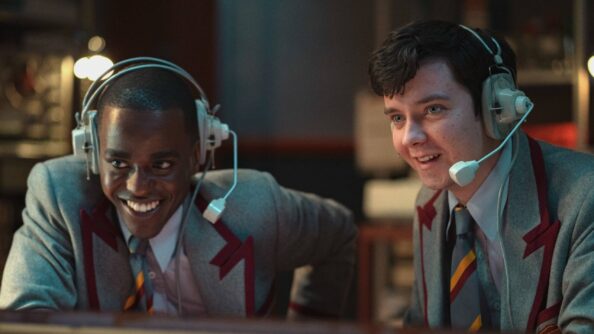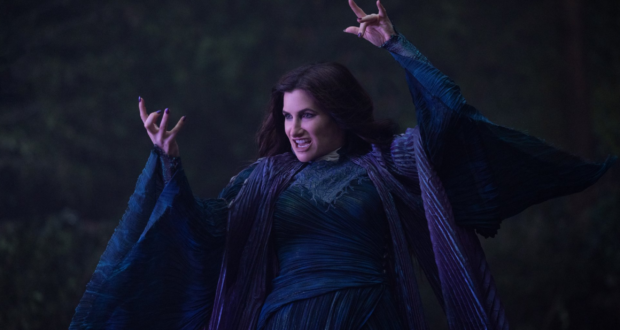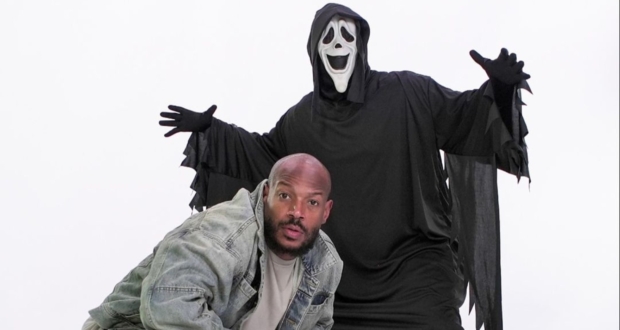In a world in which coming-of-age television shows and movies are around every corner, Laurie Nunn‘s Sex Education stands tall. The hilarious series is a modern masterpiece that has redefined the genre. This British dramedy first premiered on Netflix in 2019. Since its release, the series has captivated audiences worldwide with its unique blend of humor, heart, and unflinching exploration of adolescent sexuality. Compelling characters, progressive themes, and brilliant storytelling proves Sex Education has emerged as the best coming-of-age series of all time.
At the heart of Sex Education lies a diverse and deeply complex cast of characters. Each character is thoughtfully crafted and undergoes significant growth throughout the series, making them relatable to viewers of all ages. The protagonist, Otis Milburn, played by Asa Butterfield. Otis is an awkward and intelligent teenager who grapples with his own sexual insecurities. Otis’s journey from sexual ignorance to becoming a trusted sex advice guru is a captivating arc. His story mirrors the experiences of many adolescents navigating their own sexual awakening.
Maeve Wiley, portrayed by Emma Mackey, is another standout character. Maeve’s troubled background, ambition, and vulnerability make her a relatable figure for viewers. Her friendship with Otis is central to the show’s emotional core, and their dynamic reflects the importance of platonic relationships in adolescence.

The ensemble cast, including Eric, Aimee, Jackson, and many others, adds depth and authenticity to the narrative. These characters address a wide range of issues, from LGBTQ+ experiences and racial diversity to body image and mental health. Through its diverse character roster, Sex Education invites viewers to empathize with the struggles and triumphs of adolescents from various backgrounds.
Sex Education lives up to its title by fearlessly addressing one of the most fundamental aspects of adolescence: sexuality. Laurie Nunn’s series tackles this subject matter with nuance, humor, and sensitivity, setting it apart from other coming-of-age shows. The show acknowledges that young people are curious about sex, often confused, and in need of guidance. It doesn’t shy away from explicit content. This courage allows to show to use it as a vehicle for meaningful discussions about consent, communication, and self-acceptance.
Otis’s role as a sex advice counselor for his peers provides a unique lens. It’s from this perspective that the show examines sexual issues. It highlights the importance of open communication, consent, and understanding in sexual relationships, empowering both the characters and the viewers to navigate this aspect of life with maturity and empathy. By addressing these topics head-on, Sex Education becomes a valuable resource for fostering healthy discussions about sex among young people and their parents.
One of the most significant strengths of Sex Education is its commitment to addressing contemporary social issues. The series seamlessly weaves important themes such as LGBTQ+ acceptance, feminism, gender identity, and mental health into its narrative. These themes are not just surface-level additions but are deeply integrated into the characters’ stories, contributing to their growth and development.
Eric Effiong, portrayed by Ncuti Gatwa, is a prime example of the show’s progressive themes. Eric’s journey as a gay teenager navigating his identity, love life, and acceptance from his family and peers is portrayed with authenticity and sensitivity. Sex Education doesn’t shy away from depicting the challenges Eric faces, but it also celebrates his resilience and self-discovery, sending a powerful message of hope and acceptance.
Furthermore, the show challenges traditional gender roles and stereotypes. It presents female characters who are unapologetically strong and independent, addressing issues like slut-shaming and body image. Maeve Wiley, for instance, defies stereotypes by being a sharp-witted, entrepreneurial, and complex character who refuses to conform to societal expectations.

While Sex Education tackles serious and sensitive subjects, it also balances them with a delightful dose of humor. The humor in the series is not only clever but also serves as a mechanism to humanize the characters. This allows Sex Education to make their experiences relatable. The awkwardness of adolescence, whether in the context of dating, friendships, or family dynamics, is portrayed with a perfect blend of wit and authenticity.
The show’s humor is complemented by its ability to create moments of genuine emotion and connection. These heartfelt moments resonate deeply with viewers, making them feel invested in the characters’ lives. Whether it’s Otis’s relationship with his mother, Jean Milburn, or the evolving friendships among the main characters, Sex Education continually reminds us of the importance of empathy, compassion, and understanding in our own lives.
The success of Sex Education would not be possible without the outstanding performances of its cast and the skilled direction of Laurie Nunn. Asa Butterfield’s portrayal of Otis is a standout, capturing the character’s vulnerability, growth, and humor. Emma Mackey brings depth and authenticity to Maeve’s character, making her one of the most beloved figures in the series. Additionally, the supporting cast members deliver exceptional performances, ensuring that each character feels fully realized.
Laurie Nunn’s direction is marked by its visual creativity and emotional resonance. The show’s setting, a mix of retro and modern aesthetics, adds a unique and visually appealing layer to the storytelling. Nunn’s ability to create intimate and authentic moments between characters, even in the midst of humor and chaos, is a testament to her talent as a storyteller.
Laurie Nunn’s Sex Education transcends the typical coming-of-age series to become a modern masterpiece of television. Through its complex and relatable characters, fearless exploration of teenage sexuality, progressive themes, humor, and heartfelt moments, Sex Education captures the essence of adolescence in a way that resonates with viewers of all ages. Its outstanding performances and direction elevate it to a class of its own, making it the best coming-of-age series of all time. Laurie Nunn’s creation reminds us that understanding, empathy, and open communication are essential components of the journey through adolescence, and it does so with unparalleled brilliance.





















